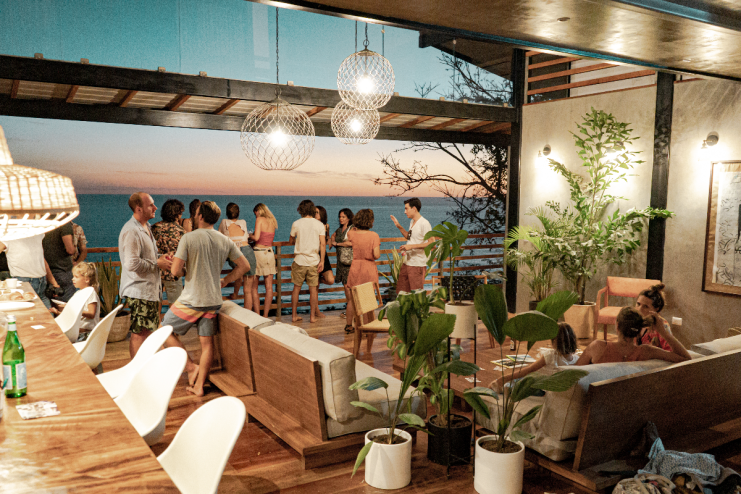
From the Summer issue of City AM The Magazine: inside the remote working company appealing to a new generation of digital nomads
Rows upon rows of cookie-cutter houses fill the boujee neighbourhood of Abbot Kinney in Los Angeles. In front of one, a basketball hoop stands by a double garage. It looks like all the rest, but this particular property is different. It is setting a new standard for digital nomad living.
It functions somewhere between an Airbnb and a posh hostel, with the bulk of the house made up of six private bedrooms built around a central co-working and socialising space. It is one of 50 properties around the world operated by Outsite, a company you’ve almost certainly never heard of that’s celebrating its tenth anniversary this year. This fact alone means it has succeeded where its competitors have not. Once upon a time there was CoBoat, the digital nomad community based from a boat; Remote Year, and Selina co-working hotels. Then there was the downfall of WeWork…
Selling somewhere to sleep and work with random strangers is a formula I hadn’t seen anywhere else. Despite 48 per cent of members earning more than $100,000 a year, Outsite has a vibe that feels almost studenty. House sharing seems to buck the conventional life-goal narrative, which dictates that the more successful you get, the quicker you inhabit your own home.
So I decide to fly to Los Angeles, where there is the highest concentration of digital nomads in the world (London has the highest in Europe), to meet the remote workers using Outsite.
Outsite has 5,000 remote working members. Almost half earn north of $100,000 per year
“I haven’t seen this kind of remote working, co-living situation before,” says Hannah, who is in her thirties and from London. She is one of a handful of people I meet within hours of arriving, after being added to a WhatsApp group by Outsite’s property manager. She’s a freelance marketing consultant, currently based out of LA. She’d signed up for the year-long Outsite membership (£110), allowing her to book in at any of the properties around the world (for a fee, of course).
I soon meet up with another Brit, 36-year-old Mark, who has worked for himself for two decades as a business-to-business seller on Amazon. He tells me he has lived full time at Outsite for the past few months. “The other night we were talking about how we all own flats in the UK and here we are, living in this shithole,” he laughs. “It’s funny when you think about it.” To be fair, Outsite is far from a ‘shithole’ (Mark notes that the LA property is worth more than $3m) – the joke is that these are wealthy people choosing to live like students, part of the global rise in people choosing careers that aren’t centered around an office.

Our house includes a fabulous entertaining area and a kitchen island big enough to accommodate the whole cast of The Hills. Everything is intimidatingly white and a piece of aspirational art features the words “no bad days.” Pictures of coloured in animals hang on the wall like children’s artwork on a fridge door, only drawn by adults. Polaroids of guests are pinned to corkboards. “You’re sharing but most people are out all day, so you’ve kinda got the house to yourself,” says Mark. “Obviously if you’ve got a relationship and stuff you want your own space, but if you’re single…”
A room without a bathroom in my Los Angeles pad costs around £2,000 per month. That’s the same as renting a one-bedroom apartment in the same part of town with a kitchen and living space to yourself. My bedroom – ‘Walgrove’, named after a street in the local area – is a decent sized double with plenty of storage, a pleasant view over palm trees, and a bedside table. It’s what you might call minimalist. Next door is a (clean) bathroom with a bath, shower and toilet. I’m a fairly light sleeper so sometimes in the night I’d wake up hearing people opening and closing their bedroom doors. As this is LA, guests use ‘outside voices’ in the morning, clanking plates and cutlery. In California, 7am is practically midday.
But while I’m irked by their pre-dawn energy, in a lonely and isolated world, the new social capital is in bringing people together. “Everyone is open to meeting new people,” Mark says. “If they were a real introvert they’d just stay at an Airbnb.” There are weekly socials and while I’m there our community manager throws a pizza party. One guy shares wine while others bring beers and people jostle to control the music. It feels like pre-gaming before a night out, only with less drinking. I doubt anyone is under thirty.
精彩评论